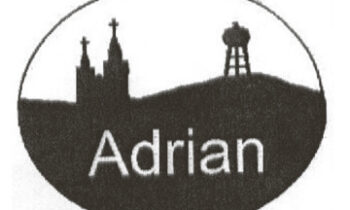By Deb Kroon,
Review Staff writer
The United States entered WWI on April 6, 1917, under the command of Major General, John J. Pershing. More than 2 million US soldiers fought on the battlefields in France, with the majority serving near or in the trenches alongside French and English soldiers. In reality the AEF (American Expeditionary Forces) spent around 200 days in actual combat, but their arrival began the process of securing victory on the Western front.
Many Americans were not in favor of the US entering into the war. It took a lot of men from families all over the country to serve. One such man was Henry L. Slater. Henry was the fifth of the seven children of Henry and Caroline Slater, and he grew up on the family farm in the Rushmore /Wilmont area. Henry was 25 years old when he sailed from Hoboken, NJ with Company 0, 131st Infantry. Although he landed in France six months before the treaty to end the war was signed, he saw a lot of the tragedies and the devastation left behind by the brutal fighting. In a letter written to his family in June of 1918, he described what his life was like on the western front of France.
This letter had been in the Slater family for all these years, unbeknownst to Henry’s granddaughter, Barb Rokahr-Froiland. Barb is the daughter of Jim (one of Henry’s sons) and Mary Slater from Worthington. While at the 60th wedding anniversary of Jack and LaVonne Slater, a cousin approached Barb and said there was something she needed to see. On an iPad was the image of the 101 year old letter. Barb had never heard anything about this letter and was thrilled with the connection to the past. She asked her cousin if she could have a copy of the letter. For months she waited for the copy, without any results. Then one day, a short time ago, she received a mailing envelope containing the real letter. She was very surprised and thrilled. This letter had been saved by one of her dad’s (Jim) brothers and had been passed down to one of his sons, and now Barb had been given this family keepsake.
Written in pencil, it was unbelievably preserved. Reading the letter was a little challenging for Barb, but Henry had described his life on the road and in the villages close to the Western Front.
Henry landed in the French port of Brest, which was one of the two major ports located on the northwestern coast of France. He tells of walking long distances, carrying everything he owned in his pack. Food was scarce and water was hard to come by. They had to get it out of wells and treat it before they could use it, so they were careful with their usage. The weather was chilly and the blankets they were to use did not come, leaving the men to cover with their overcoats and rain coats.
Henry tells that life in France was “daily drilling” and although Company O was a little farther from the front in the village they were in (at the time the letter was written), they could hear the guns when it was quiet. He also expressed the fear of being in the trenches in the near future. He describes the buildings, sleeping conditions, the roads, all of the things he was living every day. Things were very tough for the American “Doughboys”, as well as the local people. Doughboy was the popular nickname given to the Infantry, although no one knows where it originated from. He also encouraged family members to remember the protocol when writing to him, as certain things had to stay unsaid or he probably would not receive the letter.
Henry returned back home from the war on May 14, 1919, six months after the war officially ended. He married Genevieve Arens and they spent their lives on the farm near Wilmont, raising their family of seven. He passed away November, 26, 1978 at the age of 85.
James is Henry and Genevieve’s third child. He and Mary retired off the farm and presently reside in Worthington. Along with the 101 year old letter, Barb and her daughter Kori, have the trunk that Henry used to go into the service, a photograph of the Company O, 131st Infantry that Kori reframed and, thanks to an uncle who was the family historian, pictures of Henry in uniform, as well as his dogtag. Barb and Kori are determined to preserve the keepsakes of Grandpa Henry for many more years to come. They are very proud of the legacy that Henry L. Slater left behind for the Slater family.






